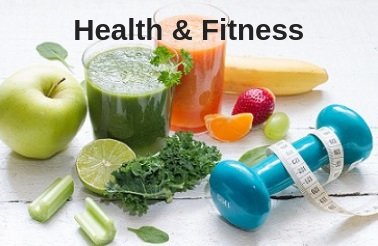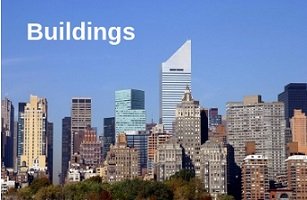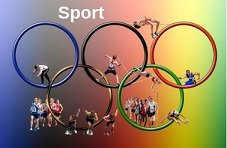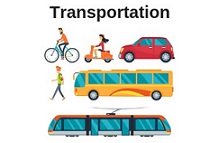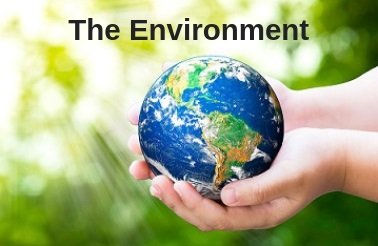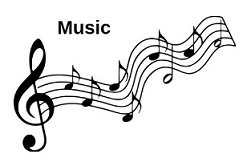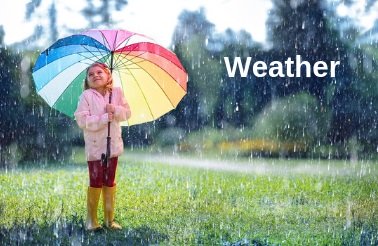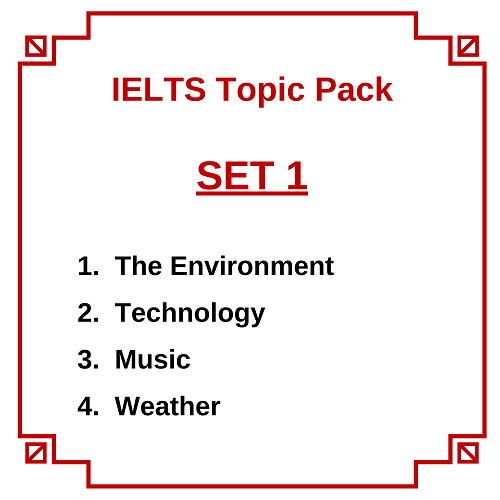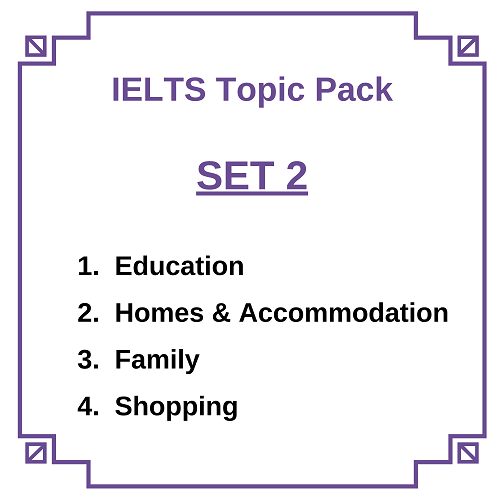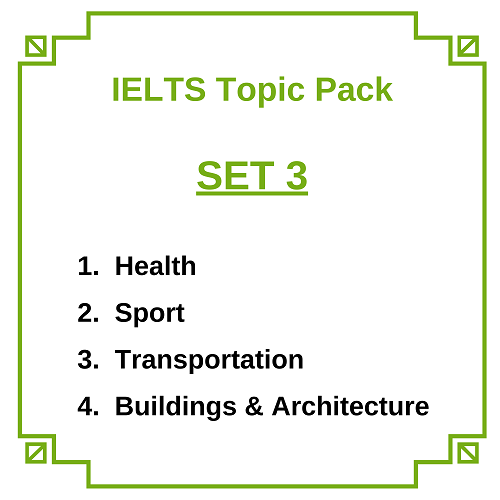Transportation Vocabulary
This page contains over 120 key words and phrases of transportation vocabulary with explanations and examples of how to use them in a sentence. This will help you to learn how to use them correctly.
Transportation is a common everyday topic in many people’s lives so it’s not surprising that it's a popular subject in the IELTS exam. It thus makes sense to learn a good variety of transportation vocabulary to help you answer any questions that come up.
Here are a few things you could be asked about:
- Public transport in your town or city
- A specific type of transportation
- A journey you’ve made
- Common problems related to transportation
- Transportation & the environment
- The future of transportation
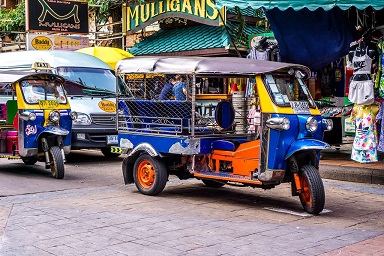 Tuk tuks are a common form of transportation in many countries.
Tuk tuks are a common form of transportation in many countries.Don’t try to learn all 120+ words and phrases. Look at my suggestions below as to the best way to use this comprehensive list.
To ensure that you’re well prepared to answer any transport-related questions, I’ve included four things here:
- IELTS-style questions on the topic of transportation
- Sample answers
- A list of common transportation vocabulary with definitions & sample sentences
- Links to online reading and listening resources
You’ll
find PDF downloads of both the questions and sample answers and the transportation
vocabulary list at the bottom of the respective sections.
Although the topic could come up in any part of the exam, the questions on this page relate to the Speaking test because this part of the exam offers the broadest range of possible questions on the subject. They give the best opportunity for me to demonstrate the vocabulary and for you to practise using it.
I’ve included IELTS-style questions and answers for all three parts of the Speaking test and have highlighted keywords and phrases in bold.
You'll find these words and phrases, and many others, in the vocabulary list beneath along with explanations and sample sentences and an audio to listen to the pronunciation.
The transportation vocabulary list contains words and phrases relevant to all parts of the IELTS exam as you may be asked to write about the topic or get a reading or listening text about transport.
Finally, at the bottom of the page, I've added links to topical articles, short videos and podcasts that will help you to improve both your transportation vocabulary and your reading and listening skills.
IELTS-Style
Speaking Test Questions and Answers
Part 1
1) What kinds of public transport
are there where you live?
We do have a bus service in my area. It’s fine for people who live in the towns but not so regular for those living in the many small villages. There is also a train that goes to the nearest city a few times a day.
2) Do you prefer public transport or private transport?
I definitely like private transport best. With my car, I can go where I want to whenever I choose to. To make a journey on public transport, you are not so independent.
3) How do you travel to work?
In the winter, when it’s cold and wet, I drive my car to work but I always get stuck in a traffic jam. As the weather improves, I go by bike to avoid the congestion.
4) Is a bicycle a good means of transport?
Most certainly, because you don’t get held up in heavy traffic. Cycling also keeps you fit and is environmentally-friendly.
5) Do you think that there should be a separate lane for bicycles?
I think that cycle lanes are a very good idea as they help to keep cyclists safe from vehicles. Since we introduced them in my country, more people have started cycling to work.
 Cycling keeps you fit & is environmentally-friendly.
Cycling keeps you fit & is environmentally-friendly.Part 2
Describe a method of
transport that you enjoy using.
You should say:
- what kind of transport it is
- how often you use it
- where
you travel using it
and explain why you enjoy using it.
One form of transport that I look forward to going on is a train. This is because I only use it when I’m going away somewhere exciting, like on holiday or a weekend break.
We have quite a good rail network in my country so it’s easy to get where you want to go. However, I live in a rural area and there is just one railway station for the whole region and it only goes to the nearest city. You then have to catch another train to go everywhere else. This isn’t very convenient. Many people drive 30 miles to the nearest town on the main line and get on the train there. I sometimes do that too.
I do quite enjoy train journeys. They are more relaxing than driving and you can look at the scenery out of the window. Having said that, the last time I took the train, it was very overcrowded and I couldn’t get a seat so I had to stand up the whole way.
My last few trips have been up to London for a few days away with a friend. It takes about three hours so we can be there by late morning. While we’re in the city, we occasionally use the underground but mostly get around on foot.
I also use the train to get to the airport if I’m going abroad. You get off at a Reading and then catch the shuttle to the airport. It’s so much easier to plan a trip now that you can see train timetables online.
I sometimes travel by train when I’m visiting other countries. It can be the best way to get around and it’s great if you enjoy meeting the local people. I once went on a train in India. It was packed with people but everyone was so friendly and we all shared our snacks.
The only other time I go on a train is when I take a trip on a steam railway. There are two in my part of the country where the old trains, railway line and stations have been restored. There is something very special about them and they are a huge tourist attraction. Everyone enjoys a ride on a steam train.
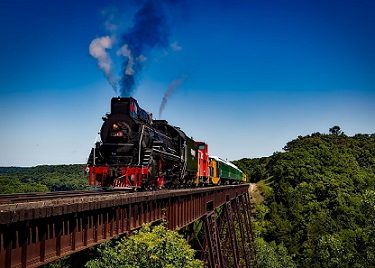 Steam trains are a popular tourist attraction.
Steam trains are a popular tourist attraction.Part 3
1) How do most people travel long distances in your country?
I’d say that the car is the most popular form of transport for long journeys. My country is quite small so you can reach anywhere in a day and most places within a few hours. You are independent when you drive and you just put your luggage in the car without having to carry it anywhere.
A lot of people use the train, both for long distance pleasure trips and to commute to the cities for work. Our cities have a big problem with congestion and it costs a lot to park your car so it’s more sensible to use the rail network.
There are also shuttle flights between the major cities so a lot of businessmen use these. The only time I travel by plane within my own country is when I’m visiting relatives up in Scotland as it’s a long way away from where I live. A plane is the quickest and easiest way to get there.
2) Do you think that transport problems are worse in urban or rural areas?
That’s difficult to say because transport issues in cities are very different to those in the countryside.
The biggest problem in our cities is congestion. There are just too many vehicles and the traffic jams are terrible. There always seem to be roadworks going on which cause bottlenecks and make things even worse. What’s more, all the cars, lorries and buses sitting in the long traffic queues emit exhaust fumes which leads to air pollution, another major concern in urban areas.
In the countryside, on the other hand, the main issue is the lack of an adequate public transport system. If you live in a small village, you might not even have a bus service so it’s impossible to get around unless you have your own private transport.
There used to be an extensive rail network serving small communities but in the 1960s, hundreds of lines were closed. Now you can only get to the main towns by train.
To weigh it up, I’d say that transport problems are equally serious in both urban and rural areas. There are just different issues.
3) Are too many people dependent on cars as a means of transport in your country?
In my opinion, most people rely on their car far too much. Many are too lazy to walk places or to commute by bike and they can’t be bothered to take the bus.
Most areas have a real problem with rush hour traffic. Although this is always blamed on people driving to work, it is far less busy on the roads during the school holidays, which suggests that the real issue is parents taking their kids to school in the car. I think that many more should make the journey on foot. This would be better for the children’s fitness as well as cutting down on congestion.
Not all the parents are being lazy. Lots just don’t have time to walk as they are rushing off to work but they could at least set up carpools as this would help to reduce the heavy traffic in the mornings.
If we had better weather in my country then I think that more people would commute by bike and you certainly see more people cycling to work in the summer.
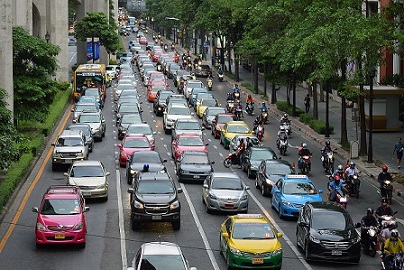 Vehicles stuck in a traffic jam.
Vehicles stuck in a traffic jam.Click this link to get a PDF download of these practise questions & sample answers.
Transportation Vocabulary
* Important
- Do not try and learn this list of transportation vocabulary.
- Identify the vocabulary you find useful for answering practise questions about this topic.
- Record these in your vocabulary notebook and practise using them regularly.
I recommend that you create
your own answers to the transportation questions on this page. You will find many
other IELTS-style practise questions by searching online.
For help on how to learn
vocabulary, what to learn and how to record it, visit these pages:
How to Learn Vocabulary for IELTS
Top 6 Types of IELTS Vocabulary & Topic Word Lists
Transportation Vocabulary – Common Words & Phrases
Transportation Vocabulary Set 1: Key definitions
vehicle – a machine, usually with wheels and an engine, used for taking people or goods from one place to another, especially on roads
- Three vehicles were involved in the accidents near my house.
to transport – take or carry people or goods from one place to another using a vehicle
- Their furniture was transported to their new house in a large lorry.
transportation – a vehicle or system of vehicles, such as buses, trains, etc. for getting from one place to another
- What form of transportation are you going to use to get to the airport?
a means / form of transportation – any vehicle that you can travel in or on or use to carry goods in
- Bicycles are a cheap means of transportation and also keep you fit.
transport system – a facility consisting of the means and equipment necessary for the movement of passengers or goods
- The transport system in my country needs a lot of improvement.
public transport – a system of vehicles such as buses and trains that operate at regular times on fixed routes, charge set fares and are used by the public
- It’s much cheaper to use public transport in the city than drive a car.
private transport – means of transport that are not available for use by the general public such as your own car
- Most people prefer to use private transport to public transport as it makes them more independent.
traffic – the vehicles, pedestrians, ships, or planes moving along a route
- There was a lot of traffic on the roads this morning.
infrastructure – the basic systems and services, such as transportation and power supplies, that a country or organization uses in order to work effectively
- The earthquake caused serious damage to the area’s transport infrastructure.
a journey – the act of travelling from one place to another, especially in a vehicle
- The train journey took them through beautiful countryside.
Transportation Vocabulary Pronunciation
Transportation Vocabulary Set 2: Means of transport
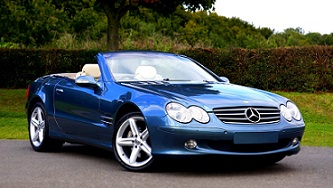 car
car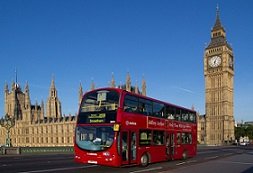 bus
bus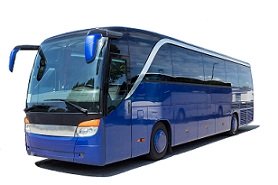 coach
coach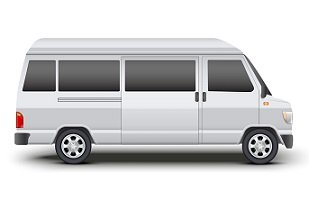 minibus
minibus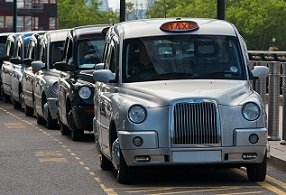 taxi / cab
taxi / cab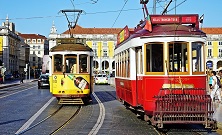 tram / streetcar / trolley
tram / streetcar / trolley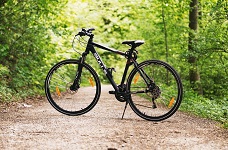 bicycle / bike
bicycle / bike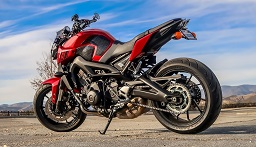 motorbike / motorcycle
motorbike / motorcycle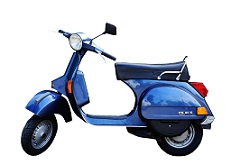 scooter
scooter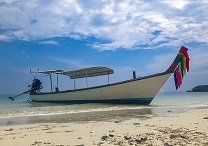 boat
boat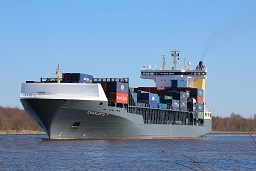 ship
ship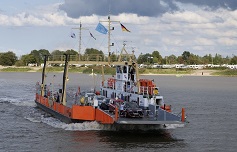 ferry
ferry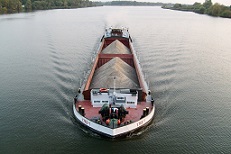 barge
barge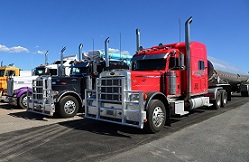 truck / lorry
truck / lorry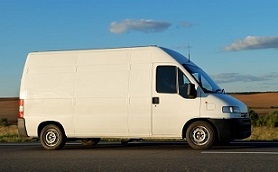 van
van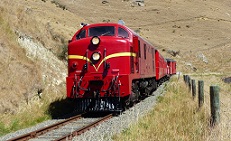 train
train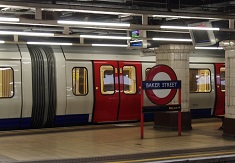 tube / metro train
tube / metro train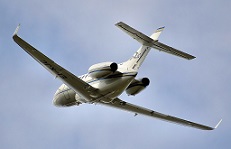 airplane / plane
airplane / plane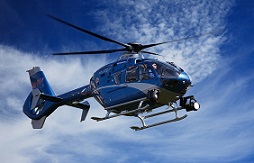 helicopter
helicopter space rocket / spacecraft
space rocket / spacecraftTransportation Vocabulary Pronunciation
Transportation Vocabulary Set 3: Roads & traffic
road – a long, hard surface built for vehicles to travel along
- Shakira waved to her mum as the bus drove off down the road.
lane – a division of a road marked off with painted lines and intended to separate single lines of traffic; a narrow rural road
- I find it quite scary driving in the fast lane of the motorway.
cycle lane – part of a road marked off with painted lines, for use by cyclists
- There have been far fewer cyclists killed on the roads since the government introduced cycle lanes in our towns and cities.
bus lane – part of a road marked off with painted lines, for use by buses
- Car drivers are not allowed to use the bus lanes.
bypass / ring road / beltway – a road which circles a town or city and enables you to go faster from one point to another.
- I usually take the ring road to visit my brother as the roads through town are always congested.
freeway / highway / expressway – a public road, often with multiple lanes, especially an important road that joins cities or towns together
- The traffic in the city centre moved slowly but once Raul hit the freeway there was less traffic and he was able to drive much faster.
motorway (UK) – a road with three lanes going each way
- Motorways are vitally important for the transportation of goods around the UK.
overpass – a bridge that carries one road over another road
- No-one believed that the new overpass would really ease traffic congestion but it has made a noticeable difference.
junction – where two roads meet
- Aksel only just missed the car that pulled out in front of him at the junction.
roundabout – a road junction at which traffic moves in one direction around a central island to reach one of the roads converging on it
- The traffic flowed much better when they replaced the traffic lights with a roundabout.
traffic light – a set of automatically operated red, amber and green lights for controlling traffic at road junctions and pedestrian crossings
- I have to drive through ten sets of traffic lights on the way to work and if I’m late, you can be sure they’ll all stop on red.
traffic jam – a line of vehicles moving very slowly or not at all
- The traffic jam was caused by roadworks near the shopping centre.
Collocations:
- to be caught in traffic / a traffic jam
- Mayuree missed her train after getting caught in traffic on the way to the station.
- to get stuck in traffic / a traffic jam
- I nearly always get stuck in a traffic jam on my way to work.
Transportation Vocabulary Pronunciation
heavy traffic – a lot of vehicles on the road
- A sunny weekend is forecast so there will be heavy traffic on the roads as people head to the coast.
to be congested – when a road or place is so crowded with traffic or people as to hinder or prevent freedom of movement
- The roads are particularly congested during the rush hour.
congestion – the state of being congested
- Congestion is a serious problem in most cities across the world.
queue – a line of people or vehicles waiting for something
- There were so many people heading into town for the sales that I had to queue for the car park.
roadworks – building or repair work on a road
- The roadworks were causing long delays for people travelling to work.
diversion – a different route used because a road is closed
- The accident closed the road and traffic had to take a two-mile diversion to get into town.
to be held up – to be stopped and delayed because of work on the road, diversions or accidents
- Soo-min apologised for being late and explained that she’d been held up in traffic.
bottleneck – a place where a road becomes narrow or a place where there is often a lot of traffic, causing the traffic to slow down or stop
- The roadworks were causing a serious bottleneck on the main road into town.
speed limit – the fastest rate at which you are allowed to drive in a particular area
If you are caught exceeding the speed limit, you will have to pay a fine.
speed camera – camera set up by a road to photograph cars exceeding the speed limit
- Most drivers slow down when they are approaching a speed camera.
road accident / car crash – a bad incident involving vehicles that happens unexpectedly and unintentionally, typically resulting in damage or injury
- Two people were taken to hospital following the car crash on the freeway.
Transportation Vocabulary Pronunciation
Transportation Vocabulary Set 4: Travel
to commute – travel some distance between one's home and place of work on a regular basis
- When Talin got her new job, she moved closer to the city so that she wouldn’t have to commute too far each day.
to travel by – to use a particular mode of transport, e.g. bus, car, train, bike, etc, to get from one place to another
- To get to work, I travel by bus.
to take – to use a particular mode of public transport, e.g. bus, train, taxi, plane
- She didn’t want to wait for a bus in the pouring rain so took a taxi instead.
to get on – to get into a bus, train or plane
- They arrived at the station just in time to get on the train before it left.
to get off – to disembark from a bus, train or plane
- Shona pushed the bell as she wanted to get off the bus at the next stop.
bus route – the fixed, regular journey made by a bus
- One of the reasons I moved to my new address is because it’s on the main bus route into town.
bus service – a public facility whereby the general public can travel on a bus from one place to another along set routes for a fixed fee
- There is a good bus service into town from where I live.
timetable / schedule – a plan of the times when particular events are to take place
- Jared’s interview was at 9.30 a.m. and the timetable showed that the early train would get him there in plenty of time.
rush hour
– the times at the beginning and end of the working day when many people are
travelling to or from work
- Ogasi was so fed up with the rush hour traffic jams that he bought a bike to cycle to work.
carpool (US) / car share (UK) – an arrangement between people to make a regular journey together in a single vehicle, usually taking turns to drive
- If more people organized carpools, the roads wouldn’t be so congested.
park-and-ride – a system for reducing urban traffic congestion, in which drivers leave their cars in car parks on the outskirts of a town or city and travel into centre on public transport
- The park-and-ride scheme was so successful that a second one was set up on the other side of the city.
the outskirts – the areas that form the outer edge of a town, city or village, that are furthest away from the centre
- It’s great living on the outskirts. It’s easy to get into the city but we are also close to the countryside.
convenient – fitting in well with a person's needs, activities, and plans
- There’s a bus stop right outside my house which makes it very convenient for catching the bus to work.
independent – not influenced or controlled in any way by other people or events
- I’m so much more independent now that I have a scooter to get around.
overcrowded – full with too many people for it to be comfortable or safe
- The tube is so overcrowded in the rush hour that it’s impossible to get a seat.
unreliable – something or someone that is not trustworthy or efficient
- Our local bus service is very unreliable and is usually running late.
Transportation Vocabulary Pronunciation
Transportation Vocabulary Set 5: Transport systems
network – a group or system of interconnected people or things
- The new government made a commitment to improving the country’s transport network.
Collocations:
- road network– a system of interconnected roads
- rail network– a system of interconnected railway lines
the underground
/ the tube / the subway / the metro – an underground
railway system in a city
- The quickest way to get around London is on the underground.
canal – an artificial waterway constructed to allow the passage of boats or ships inland
- Ship canals such as the Panama Canal and Suez Canal are vitally important for world trade.
a shuttle – a vehicle or aircraft that travels regularly between two places
- Itsuki took the shuttle from his hotel out to the airport.
Transportation Vocabulary Pronunciation
Transportation Vocabulary Set 6: Transportation & the environment
fuel – a substance that is used to provide heat or power, e.g. petrol, diesel, gasoline, oil,
usually by being burned
- Scientists are working hard to develop more environmentally friendly fuels.
emissions – an amount of something, especially a gas such as carbon dioxide, that is sent out into the air and harms the environment
- Car manufacturers are under pressure to reduce exhaust emissions.
emit – to produce and discharge something, especially a gas
- Vehicles emit high levels of harmful gases into the atmosphere.
exhaust fumes – harmful gases emitted from a vehicle engine
- Many cities have a big problem with air pollution caused by exhaust fumes.
energy efficient – using only a small amount of fuel
- I chose this make of car because it is very energy efficient.
air pollution – the presence of harmful substances in the air, often consisting of waste emissions from vehicles
- Air pollution is so bad in some cities that people have to wear face-masks when they go out.
environmentally-friendly – not harmful to the environment
- Electric cars are a more environmentally-friendly than those that run on petrol.
gas guzzler (informal) – a vehicle that uses a lot of fuel
- For many people, a large car is a status symbol and they aren’t concerned about the harm their gas guzzler is doing to the environment.
Transportation Vocabulary Pronunciation
Transportation Vocabulary Set 7: The future
autonomous vehicle / driverless car / self-driving car – a car capable of driving itself through a computer system
- I would be very nervous of riding in an autonomous vehicle and don’t think that they are safe.
space travel – travel through outer space
- They say that it won’t be long before members of the public are able to enjoy space travel.
high-speed rail – a passenger train that travels at a very high speed using specialised rolling stock and a system of dedicated track
- In the future, high-speed rail networks will take over from traditional railways.
Transportation Vocabulary Pronunciation
Transportation Vocabulary Set 8: Other vocabulary
to go on foot – to walk somewhere
- The restaurant was only a mile from our house and we decided to go on foot so that we could all enjoy a bottle of wine and no-one had to worry about driving home.
pedestrian – a person who travels on foot
- Some areas of our city are for pedestrians only and vehicles aren’t allowed there.
to run a car – to own and drive a car
- It’s not really worth running a car if you live in the city as it’s easier and cheaper to get around on public transport.
toll – money that you pay to use a particular road or bridge
- Some countries charge motorway tolls but most of our motorways are free to travel on.
a speeding fine – a sum of money that must be paid as punishment for driving faster than legally allowed
- I was really cross with myself for getting a speeding fine but it was my own fault for driving too fast.
Transportation Vocabulary Pronunciation
Transportation Vocabulary Set 9: Idioms
bumper to bumper – very close together, as cars in a traffic jam
- The traffic is usually bumper to bumper when I take the kids to school.
beat the traffic – to leave early to avoid travelling when the roads are crowded
- Sharon left for the airport at 7.00 a.m. in order to beat the traffic.
hit the road – set out on a journey
- They hit the road early as they wanted to reach the holiday cottage by lunchtime.
hitch a lift / ride – to get a ride in someone else’s vehicle
If I miss the bus, I can usually hitch a lift with a colleague who lives a few streets away from me.
Transportation Vocabulary Pronunciation
Click this link to get a PDF download of this list of transportation vocabulary.
Ways to Improve Your Transportation Vocabulary
One of the best ways to improve your transportation vocabulary is through reading. Watching topic related YouTube videos and listening to podcasts is also hugely beneficial.
Here are some online resources I recommend.
Articles
TED Talks
I love TED Talks. They are short videos with a powerful message and are generally very interesting. They’re ideal for improving your vocabulary and give valuable listening skills practise.
Search TED Talks - Transportation to help you improve your transportation vocabulary.
